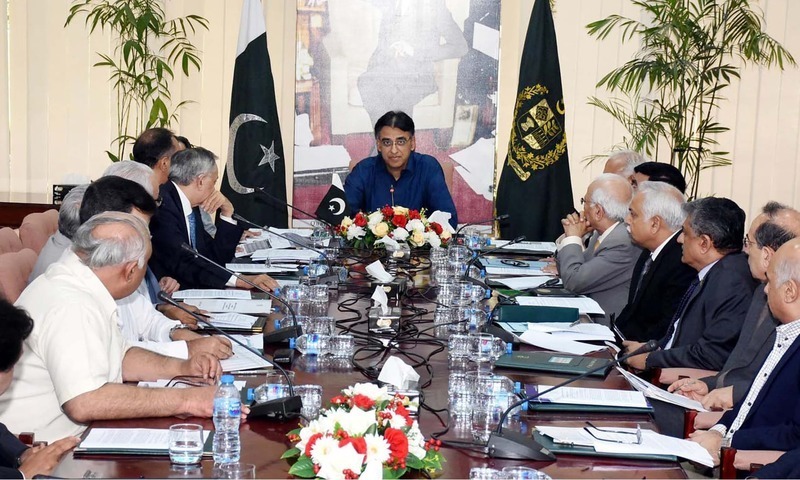ISLAMABAD: Disclosing that Rs1.4 trillion public money stood parked outside the treasury single account, the government on Tuesday announced full cost recovery of power and gas supply through automatic price adjustment, bring provinces into fiscal discipline and launch a series of international bonds over the next couple of years.
This is part of the Medium Term Economic Framework (MTEF) released by the government on Tuesday. The 45-page document generally sets the direction of the government’s economic plans under the International Monetary Fund supported stabilisation programme.
The document highlighted the weakness of fiscal management saying “many public sector agencies park unspent monies outside the Treasury Single Account (TSA). By end 2018 there was an estimated Rs1.4tr in these accounts”, showing a clear case of lack of oversight of public finances.
An official said these funds were deposited in commercial banks who then lend such funds to the government through investment bonds and similar other instruments to finance budgeted expenditures.
Medium-term framework targets unspent public money
These accounts of the public agencies are not linked to the TSA and while these amounts are reflected in SBP reports, they remain outside the fiscal reporting framework of the government.
The paper said some of the monies were due to “leakages” from the fiscal management system and were reported as expenditure in the past fiscal reports, thus showing a larger than actual fiscal deficit. Moreover, these accounts adversely impact government’s cash management and audits of public expenditure.
The government said it had already instructed the central bank to design administrative procedures and IT system for rolling back public monies from commercial banks to the TSA while the a policy for TSA was being drafted to ensure rule based regime of cash management.
The government has also decided to undertake major reforms in the energy sector to bring the sector to financial sustainability. In order to do so, the government has initiated a process of bringing energy prices to the cost recovery levels, while at the same time making efforts for cost-saving and greater efficiency of the system.
On the electricity side, this has four main steps including full cost recovery, elimination of all unfunded subsidies from the fiscal year starting July 1, major anti-theft and recovery drive, elimination of transmission constraints and technological interventions in distribution, and governance improvement and optimization of existing system.
“In addition, automatic quarterly tariff adjustments, which were stalled until Dec 2018, have been restarted so that any change in cost of supplying electricity could be passed on to consumers without much delay”, the plan said.
Prize bonds:
The government said it has decided to convert all prize bonds, except those of smallest denominations, from bearer to registered instruments to remove the potential distortions that these can create in managing of monetary policy and being used as a source of whitening black money and money laundering.
The new higher denomination (Rs 100,000) prize bond was issued only as a registered instrument, while the Prime Minister has approved the conversion of Rs40,000 prize bond into a registered instrument. The government intends to gradually phase out other non-registered bonds.
In view of challenging arising out of 7th NFC award, the government plans to use the Fiscal Coordination Board (FCB) – which comprises the federal and all four provincial Finance Ministers, as a mechanism to better coordinate federal and provincial fiscal activities so as to ensure greater fiscal discipline and that all governments to move toward attainment of common macroeconomic goals.
The existing arrangement raised certain fiscal and macroeconomic risks like the escalation of fiscal deficit during the last two years partly because of spending spree by the provinces.



